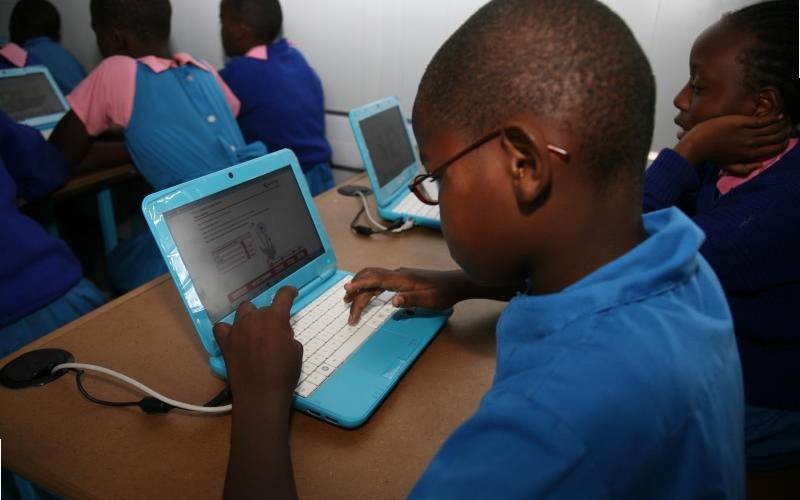 |
|
Woman nurses her child PHOTO: COURTESY |
By NANJINIA WAMUSWA
[email protected]
Kenya: According to World Health Organisation 2010, malnutrition is responsible for 53 per cent of deaths of children below five years.
Majority of Samburu, Turkana, Borana, Maasai and Pokot families are reportedly poor because the area is too dry to support agricultural activities.
Consequently, residents have little food for consumption and rely on charitable organisations or government for support. They also live in isolated areas with poor infrastructure and makeshift structures made of nylon papers, grass and dry twigs.
But Segera Mission Dispensary in Segera Location, Laikipia North Constituency, Laikipia County has brought reprieve after a supplementary food programme to rescue malnourished children was introduced.
In 1998, an American missionary, Reverend Carlton Gleason visited Kenya and toured Segera Ranch. He also visited Segera village and was shocked at the poverty levels in neighbouring communities.
He was touched that the animals were well taken care of than residents. He went back to America but returned in 1999 and settled among the communities.
In 2000, he started constructing the Segera Mission complex to help the community using his own resources. Gleason died in 2008 and his daughter, Janice Gleason, took over and has since been soliciting funds in America to continue supporting the communities.
Nurse in-charge, Christine Makandi says they diagnose tens of children with severe malnutrition who have swollen stomachs and faces, brown hair, emaciated limbs, wasted muscles, protruding limbs, underweight and dry and folded skins.
Infectious diseases
She says malnutrition occurs when food is deficient of the right dietary requirements, unhealthy environment and poor health systems. Infectious diseases such as diarrhea and acute respiratory diseases contribute to nutrition related complications. Residents attend the clinic to get food supplements and treatment. Maria Makede, 78, sits pensively with her five grandchildren among hundreds of women crowding the dispensary’s reception.
The women, young and old, each with children had trekked from Kisargei, Black Tank, Kukulai, Kambi Karatasi and Shaba villages, some as far as 20km. Makede had travelled 10km and despite her weary stature, the sheer determination to see her grandchildren get food supplements kept her strong.
This was her eighth continuous weekly visit. “The first time we visited my grandchildren were very sick, almost dying,” she says. Seeing them recovering, she appreciates the importance of attending the clinic. Chief Nutrition Officer-Ministry of Medical Services, Rosemary said Kenya has a population of 6,700,000 children with 3,504,100 malnourished. “Nutrition status of children under five is poor with 52.3 per cent having macronutrient malnutrition. A high number has some form of macronutrient in varying degrees,” she said. She says of 1,182, 600 children born annually only 32 per cent exclusively breast feed. She warned that 804,168 infants are mixed fed as early as two days after birth, putting them under high risk of morbidity and mortality.
According to Kenya Demographic and Health Survey 2008/09, Nutrition Data stunting stands at 35.3 per cent affecting 2,365,100, wasting 6.7 per cent (448,900), low birth weight is 5.6 per cent (375,200) and overweight 4.7 per cent (314,900).
Stay informed. Subscribe to our newsletter
Currently treats
The dispensary currently treats over 180 severe and 300 moderate cases of malnutrition.
“Women are now attending the clinic having realised its benefits. In the past they witnessed children they believed would die recover after treatment,” she said.
For instance, Baby David (pictured left) who was severely malnourished but regained good health after receiving the food supplements. A nurse, Leon Kimathi says on arrival at the dispensary, children are first screened to determine their weight, height and the circumference of their hands.
Those found with severe malnutrition are put on treatment.
Save the Children Chief Nutrition Advisor Assumpta Ndumi says malnutrition is preventable and treatable. However, the ones who are not seriously ill are treated at home with medication and a special food (plumpynut) that contains all nutrients required for healthy growth.
She says moderate malnutrition is treated with specially fortified cereal based flour that contains additional nutrients to support growth and prevent severe malnutrition.
“It is important to put children on appropriate diet and prevent disease through breastfeeding, proper hand washing, immunisation and a clean home environment. He states the dispensary discharges between 15 and 20 children monthly.
 The Standard Group Plc is a
multi-media organization with investments in media platforms spanning newspaper
print operations, television, radio broadcasting, digital and online services. The
Standard Group is recognized as a leading multi-media house in Kenya with a key
influence in matters of national and international interest.
The Standard Group Plc is a
multi-media organization with investments in media platforms spanning newspaper
print operations, television, radio broadcasting, digital and online services. The
Standard Group is recognized as a leading multi-media house in Kenya with a key
influence in matters of national and international interest.
 The Standard Group Plc is a
multi-media organization with investments in media platforms spanning newspaper
print operations, television, radio broadcasting, digital and online services. The
Standard Group is recognized as a leading multi-media house in Kenya with a key
influence in matters of national and international interest.
The Standard Group Plc is a
multi-media organization with investments in media platforms spanning newspaper
print operations, television, radio broadcasting, digital and online services. The
Standard Group is recognized as a leading multi-media house in Kenya with a key
influence in matters of national and international interest.








